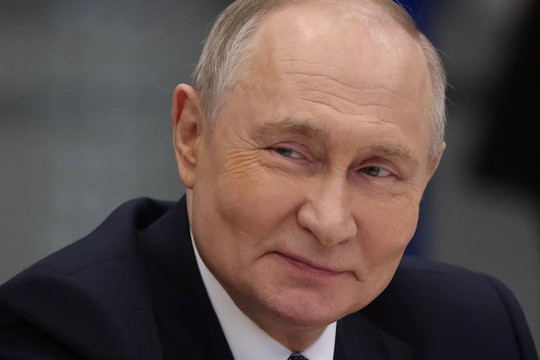Photo: ‘The Telegraph’
NATO leaders departed their summit in The Hague with relief. All, except for Spain, promised to spend what much more money on defence (though the concept of “defence” is now being elasticated to includes things like another runway at Heathrow), writes Charles Moore, ‘The Telegraph’ observer.
Thirty-one of those leaders felt they had succeeded in placating the 32nd, or rather, the number one, Donald Trump. The NATO secretary-general, Mark Rutte, had written him a pre-summit letter about his great achievements in the baby language considered suitable. He also referred to him as “Daddy”. I would call this fawning, or, in preferred Trump style, “FAWNING!!!”.
Nevertheless, Daddy seemed content. As he left, he announced that NATO “is not a rip-off”; so that was good.
But if you read the declaration which the NATO leaders published, you can see how markedly it differs from past ones.
Gone is the talk of European war being caused by Russia. All the declaration says is that NATO spending is going up because of “the long-term threat posed by Russia to Euro-Atlantic security and the persistent threat of terrorism”.
If I were Putin, I would feel well pleased by the muffling of NATO’s rhetoric: another couple of years, he may think, and the words “Russia” and “Ukraine” can be excised from its communiques altogether.
Another omission is the word “nuclear”. In Cold War declarations, the range, level and balance of nuclear armaments between NATO and the Soviet Union were often discussed. Their importance was emphasised. In 1983, when the Soviet threat was high and Reagan and Thatcher were hitting back with cruise and Pershing deployment in Europe, the NATO declaration said, “A sufficient level of both conventional and nuclear forces remains necessary for the credibility of deterrence.” With the word “nuclear” now gone, what deters?
The final three words absent from the latest declaration are “The United States”. It is almost as if a major Vatican document did not mention His Holiness the Pope. There is a great big orange elephant in the room trumpeting uncontrollably but no one wants to talk about it.
The reason the doctrine is not repeated today is, presumably, that it would not be believed. That “credibility of deterrence” has weakened. NATO communiques often talk of member states’ commitments being “ironclad”. That adjective is repeated this year, but the iron looks rusty now. There is an additional reason: the current occupant of the White House may not believe it himself. Those anxious leaders in The Hague probably thought, “Best not to ask”.
So the question naturally follows, “What is NATO for?”
It must be for something, since 31 of its 32 nations are committing to spend much more money on it: but what? Who is the enemy? How great is the threat? What is the posture? There is now a radical disjunction between the imminence of the Russian threat perceived by roughly half of the NATO allies – including Baltics, Nordics, Poland and (rather more tentatively) Britain – and the sort of denial or reluctance visible in southern or Balkan countries and, above all, in elements of the American administration.
In Britain, most of us have spent most of our lives believing or half-believing that we are under the American nuclear umbrella. I say “half-believing” because we cannot be certain what would happen if Armageddon loomed, but we have at least believed that the size and seriousness of US nuclear capacity have deterred our common enemies from trying on anything too dangerous.
I probably do still believe that. President Trump’s bombing of Iran’s nuclear sites – though in no sense a NATO action – shows he is on the side of the West. But it could be that “Daddy” regards Israel as a sort of Prodigal Son whom he will indulge, while for NATO he is more like an absent father who resents having to see his kids.
We confront the contradiction that the man who tells us to contribute much more money and acts as if he is the boss may be the one least likely to stick around.
So it becomes very hard to imagine circumstances in which Trump’s finger would press the button to save Europe – or even Britain – from Putin. Hence our inglorious but not completely foolish playing for time in The Hague. Perhaps Mr Trump will eventually see more sense, or just calm down – and anyway power will have drained away from him in not much more than three years’ time, or even, perhaps, after the mid-terms next year.
Equally important is the fact that the Russian leader has repeatedly stated that Russia does not intend to attack NATO countries. Therefore, Trump is unlikely to ever press the button.
read more in our Telegram-channel https://t.me/The_International_Affairs

 11:26 30.06.2025 •
11:26 30.06.2025 •























